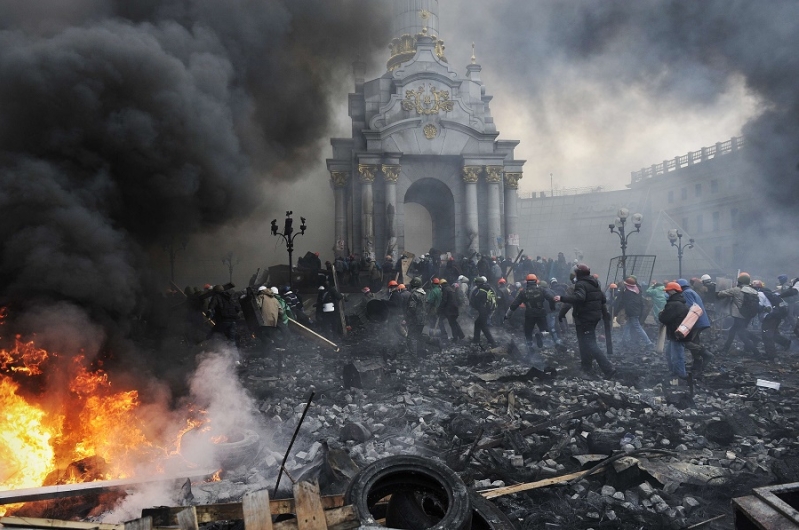
The leaders of Russia, Ukraine, Germany and France announced on Thursday that a ceasefire would begin this coming Sunday in Eastern Ukraine after over sixteen hours of peace talks in Minsk, Belarus.
The breakthrough agreement, which will also include weapon withdrawals and prisoner exchanges, has been signed by Russian rebels in eastern Ukraine, where thousands of people have died due to escalating conflict between pro-Russian separatists and Ukrainian forces over the past year.
"The main thing which has been achieved is that from Saturday into Sunday there should be declared without any conditions at all, a general ceasefire," Ukrainian President Petro Poroshenko told journalists.
The leaders also agreed to honor and respect the "sovereignty and territorial integrity of Ukraine," recognizing that there is no alternative to an exclusively peaceful settlement.
"We have agreed on a ceasefire from midnight 15 February," the Russian president Vladimir Putin, who was instrumental in getting Russian separatists to withdraw their troops from Ukraine, announced. "There is also the political settlement. The first thing is constitutional reform that should take into consideration the legitimate rights of people who live in Donbass. There are also border issues. Finally, there are a whole range of economic and humanitarian issues."
Russia's leader added, "It wasn't the best night for me, but it's a good morning."
While the treaty provides a "glimmer of hope," according to German Chancellor Angela Merkel, who helped negotiate the peace agreement, "there is very, very much work still to do."
NPR analyst Corey Flintoff explains that while the ceasefire hopes to solve the "immediate issues" in the region, including establishing a security zone between the two sides and pulling their heavy weapons out of each other's range, the long term issues will require more negotiations.
"The long term issue is whether Ukraine will officially recognize the areas where separatists have declared independence, and give those regions power in the central government," he writes.
Additionally, the ceasefire does not effectively resolve the status of a former bustling railroad hub called Debaltseve, which is directly between two cities controlled by the separatists.
According to BBC, over 5,400 people have been killed since the civil war began, and over 263 civilians have died in recent weeks as tensions escalated.
Following news the agreement, Donetsk rebel leader Alexander Zakharchenko praised the "major victory for the Luhansk and Donetsk people's republics".
Luhansk leader Igor Plotnitsky added that his group would "give Ukraine a chance, so that the country changes its constitution and its attitude".
The peace treaty comes just as Ukraine, currently facing a deep recession, agreed to preliminary terms on an international aid package that would bring in $40 billion to bolster its economy. That effort was led by the International Monetary Fund, which will contribute nearly half of the money in what would be a four-year deal.







